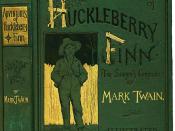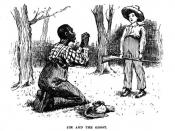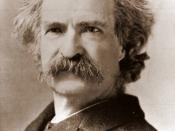"There is only one right form for a story, and if you fail to find that form, the story will not tell itself."
- Mark Twain
Literature is full of deception, irony and half-baked truths. Yet, this is exactly the reason why Literature is such an experience to read. Authors seek to tell their finely woven tales through their respective narrators; not just any other tale but THEIR tale. Injecting their own personal experiences, subjectivity and point of view into the story through differing forms of narration, the Author seeks to endow the Reader and the characters in the story with as little or as much knowledge as he sees fit. Depending on the extent of control the Author extends in forcing the interpretation of the text by the Reader, we may be able to draw our own conclusions pertaining to the text, or so it may seem. As the Zurich scholar Bodmer puts it, "Something can appear untrue to reason which appears true to the imagination.
Conversely, reason can accept something as true which appears unbelievable to ones fantasy; and therefore it is certain, that the untrue sometimes seems more probable that the true." The question now stands; can we truly believe whatever has been laid to the feast before our very eyes?
We must then question how Authors influence Narrators and vice versa. In all cases of literature, the style of narration of the text and the content of the text is closely linked to the historical, social and literary background of the Author. For example, the Author Mark Twain was described as a "mischievous boy, a prototype of his own character, Tom Sawyer... by nine he learned to smoke and headed a small band of pranksters, and most of all, he detested school." Twain had lost his...


